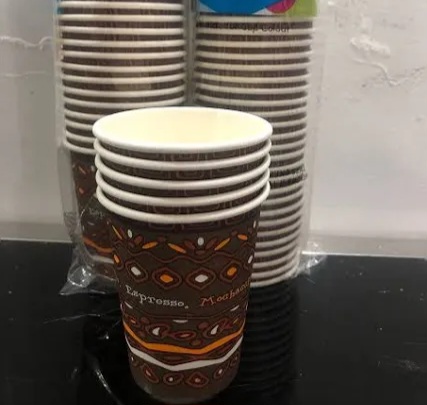In towns, cities, and market places across Kenya, the sight of kahawa vendors diligently serving their customers is a common one. These vendors have become an integral part of the urban landscape, offering a convenient and affordable alternative to traditional coffee shops. For office workers, commuters, and those on the go, the accessibility of street-sold kahawa is unparalleled. Kahawa vending has emerged as a vital source of income, particularly for the youth. With the initial investment being relatively low, many young people have turned to this business to sustain themselves financially. The kahawa vendors not only sell coffee but also enhance the drinking experience by offering locally made snacks, thereby promoting local cuisine and providing additional employment opportunities for culinary entrepreneurs.
However, despite the economic benefits and entrepreneurial opportunities that the kahawa business provides, it has inadvertently contributed to a significant environmental issue. The widespread use of plastic cups by kahawa vendors has sparked growing concern among residents and environmental advocates throughout Kenya. The proliferation of these plastic cups in streets, market places, and recreational parks has become a pressing issue.
Plastic kahawa cups, being non-biodegradable, do not decompose naturally. Instead, they fragment into smaller pieces, contributing to plastic pollution. The increasing presence of these cups is reminiscent of the problem once posed by polythene bags, which were eventually banned due to their environmental impact. Kahawa cups are not recyclable, and when discarded carelessly, they litter the environment, clog drainage systems, and during the rainy season, they often end up in water bodies such as oceans, lakes, and rivers. This not only pollutes water sources but also disrupts marine ecosystems. The environmental repercussions of plastic kahawa cups are far-reaching. They create an unpleasant visual blight, obstruct water flow in drainage systems, and contribute to surface runoff pollution. As these plastic fragments make their way into water bodies, they pose a threat to aquatic life and overall ecosystem health.
Despite these challenges, the kahawa business remains a crucial source of livelihood for many, especially the youth. To balance the economic benefits with environmental sustainability, we can; first and foremost use recyclable and biodegradable cups, this approach is to develop and promote the use of recyclable and biodegradable cups. For instance, cups made from the thick, fibrous stems of banana plants or other natural materials could replace plastic cups. Stainless steel and ceramic cups are also viable alternatives that could be encouraged among vendors and customers. Furthermore, we can invest in community education, educating both the community and kahawa vendors about the effects of plastic pollution is essential. Awareness campaigns can highlight the environmental impact of plastic waste and promote the adoption of eco-friendly alternatives.
Additionally, we can improve waste management systems, increasing the number of waste disposal bins in towns, streets, and recreational parks can help manage the disposal of kahawa cups more effectively. Proper waste segregation and collection systems can significantly reduce littering and ensure that recyclable materials are processed appropriately. Moreover, we can also initiate incentive programs, implementing incentive programs for vendors who adopt sustainable practices can encourage a shift towards environmentally friendly alternatives. For example, offering discounts on bulk purchases of biodegradable cups or providing recognition and rewards for eco-conscious vendors can drive positive change.
Finally, promoting partnerships and collaborations. Note worthy, collaboration between local governments, environmental organizations, and the kahawa vending community is crucial. Joint efforts can lead to the development and implementation of policies that support sustainable practices while maintaining the economic viability of the kahawa business. The kahawa vending business plays a vital role in providing economic opportunities and promoting local cuisine. However, the environmental impact of plastic kahawa cups cannot be ignored. It is possible to create a win-win situation where the kahawa vendors thrive economically while contributing to environmental sustainability. Addressing this issue not only benefits the vendors and consumers but also ensures a cleaner, healthier environment for future generations.





![Dr. Maya Pradeep ; The paragon of resilience [Part II]](https://citybitemagazine.com/wp-content/uploads/2024/08/FB_IMG_1722944024179-218x150.jpg)





